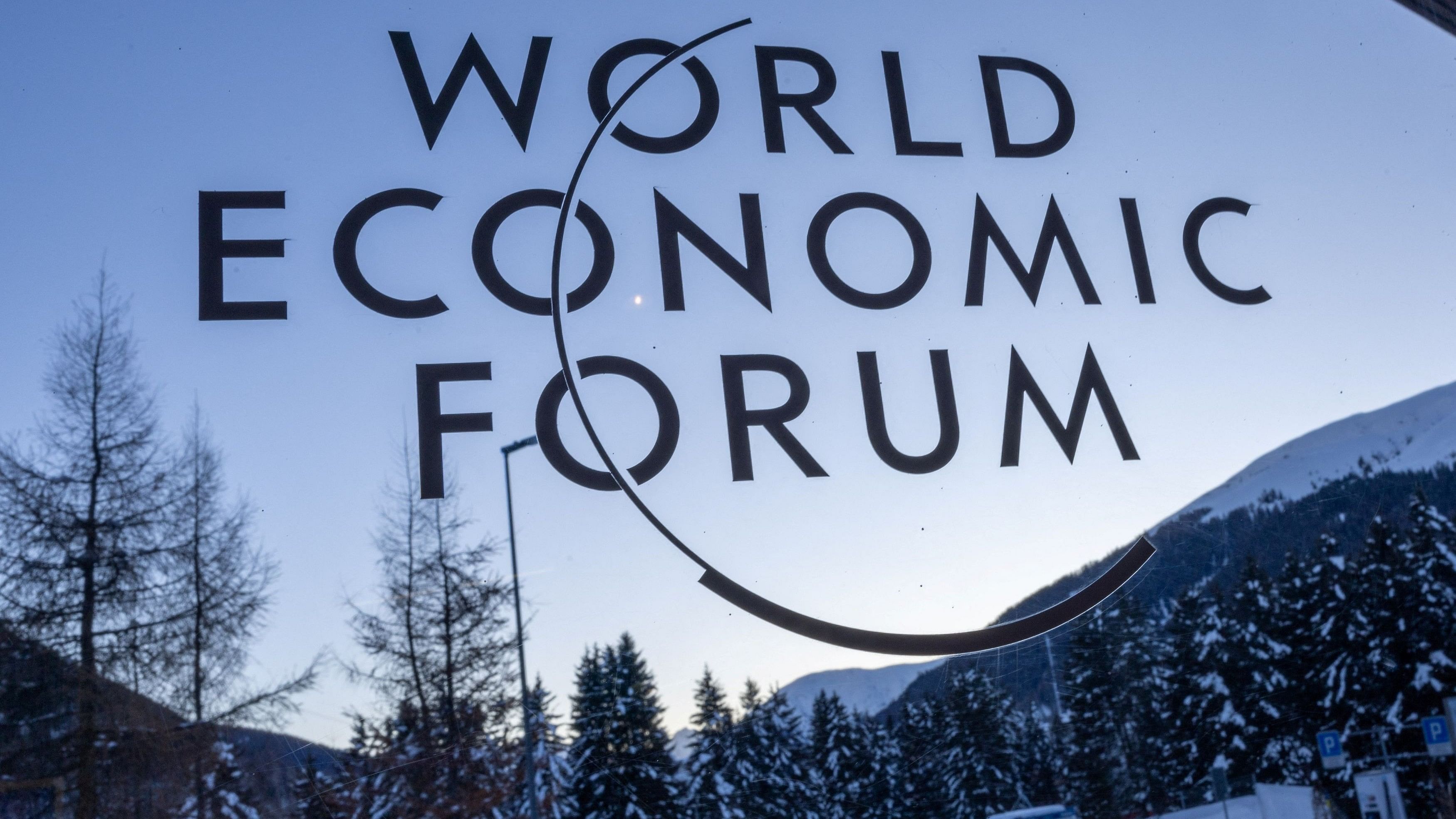
A logo is pictured in the Congress Center ahead of the annual meeting of the World Economic Forum in Davos, Switzerland, January 13, 2024.
Credit: Reuters Photos
Davos: As Davos readies to host its annual talkfest of rich and powerful from across the world, nearly 5,000 army personnel have been deployed to help police and civilian authorities secure this small Alpine resort town.
Davos is estimated to have a permanent population of just about 10,000 but is frequented throughout the year by tourists including skiing enthusiasts in ski season, but it is the week of the World Economic Forum Annual Meeting when it sees the maximum footfalls with at least 30,000 people in the town.
Given the high-profile nature of the event, beginning Monday, the security is both discreet and visible and comprises snipers, drone jammers, regular frisking and checking and round-the-clock patrol.
In addition to army personnel, there is a huge number of police men and women, support staff running into thousands and then nearly 3,000 world leaders are attending this year's summit, and so are over 500 journalists. And there is no less number of tourists, it being a ski season.
Armed forces began their deployment on January 9 itself and they would be here till January 25, according to Swiss Army.
Air Force has also been tasked to monitor and secure the airspace.
Besides, it will use its helicopters to transport people protected under international law on behalf of the Swiss federal government.
These flights are not to be confused with the private helicopter taxis for business giants, which also will be aplenty.
The persons protected under international law mostly include high-ranking officials such as presidents and members of the government of foreign states, who can benefit from VIP transport by the Air Force.
High-ranking members of international organizations such as the UN or the EU also belong to this group of people, including the UN Secretary General and the President of the EU Commission.
More than 200 internationally protected persons, including nearly 300 heads of state and government, are expected for this year's meeting.
The additional costs for security at the WEF Annual Meeting 2024 are estimated at around CHF 9 million (nearly Rs 87 crore).
As in previous years, the federal government, together with the WEF Foundation and its other partners (Canton of Graubunden, commune of Davos), will contribute to the costs of WEF Annual Meeting security measures for the period 2022-2024 as part of a three-tier finance model.
There is a cost ceiling of CHF 9 million a year for security. If the cost ceiling should be exceeded due to exceptional circumstances, level-2 of the finance model is applied.
The federal government has set aside maximum additional funds of CHF 900,000 to cover such cases for the three annual meetings from 2022 to 2024.
If the additional costs exceed this amount, the extra expenditure will be met by the finance partners according to the ratio set under level 1, unless level 3 comes into play.
In the event of exceptional incidents (for example, terrorist attacks, assassination attempts, major threats or clear indications that such acts may be carried out), the federal government will meet 80 per cent of any costs exceeding those under levels 1 and 2.
The remaining 20 per cent will be met by the Canton of Graubunden and the WEF.
Overall, the cost of deploying troops at the WEF Annual Meeting is much the same as that incurred by the same battalions when on regular training.
Deployments in connection with the WEF Annual Meetings from 2022 to 2024 will have an annual budget of CHF 32 million. Deployment costs in recent years have been under budget (2020: CHF 29.74million, 2022: CHF 21.4 million).
The WEF is a foundation. In the financial year from July 2022 to June 2023, it reported total revenue of CHF 409 million. There was no surplus during this period.
Given the importance of this meeting for Switzerland and its people, all cantons in Switzerland participate in the inter-cantonal police operation to maintain security and protect people and property.
Authorities maintain that there are no general travel restrictions and Davos is accessible by public transport or by car. Precautionary personal, vehicle and baggage checks will, however, be carried out on all access roads.
Air traffic over the Swiss territory will be restricted within a radius of 25 nautical miles (around 47 kilometer) from the centre of Davos.
Similar restrictions apply to areas near the border in Austria and Italy. Arrivals and departures to the airfields within the security zone are subject to special rules and procedures that the Air Force has developed in cooperation with the Federal Office of Civil Aviation.
Operation with model aircraft, drones and tethered balloons is also restricted in the area, so will be flights with delta gliders or paragliders.